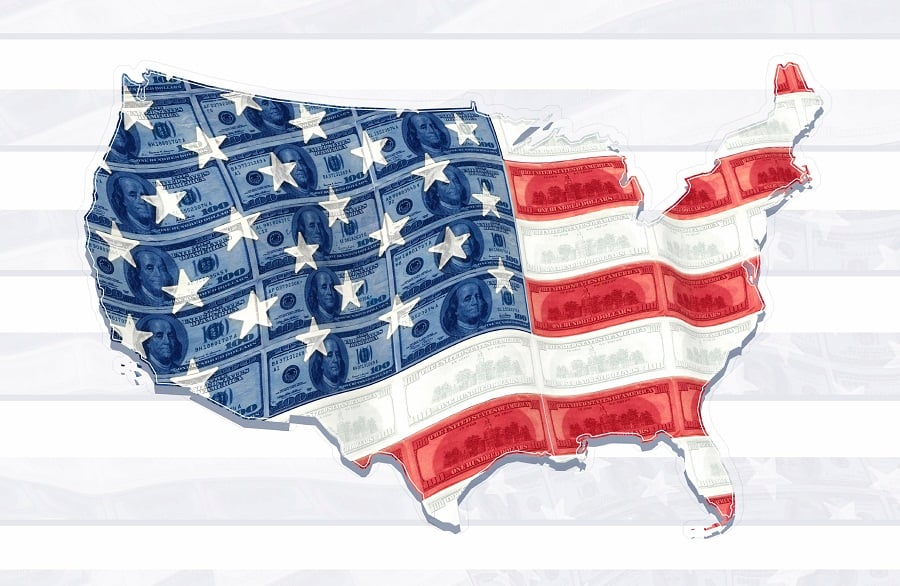Not only would state-run plans undermine existing healthy competitive private markets for retirement plan products and services, but they are not be a good deal for American workers.
As more and more states over the last two years have begun to consider bills that would establish state-run retirement plans for private sector workers, the Financial Services Institute (FSI) has been very clear about such bills' potentially disruptive effects. While the proponents of these bills have the best of intentions, state-run plans would undermine existing healthy competitive private markets for retirement plan products and services, and could reduce savers' access to advice from independent financial advisers, who have provided expert retirement plan guidance to businesses in their respective states for many years.
With the Department of Labor's recent introduction of a proposed rule to establish a safe harbor under ERISA for specific types of state-run retirement plans, though, there is a larger question that legislators, regulators, advisers and voters should be asking themselves: Fundamentally, would state-run plans be a good deal for American workers?
After a careful analysis of the DOL's proposed rule and accompanying interpretive bulletin, it's clear that the answer is a resounding “no.”
RETIREMENT SAVINGS CRISIS
Study after study tells us far too many Americans are not saving enough for retirement. In response, state legislators across the country have started to examine state-run retirement plans for private sector workers who lack access to employer-sponsored plans as one possible way to address the retirement savings crisis. (FSI wholeheartedly supports the goal of helping Americans better prepare for retirement.)
Lawmakers have been concerned, however, that state-run plans may have difficulty complying with ERISA and could therefore be vulnerable to court challenges. The DOL's new rule is designed to clear a path for state-run retirement plans by exempting them from many ERISA requirements, provided the plans incorporate specific features. The rule is therefore expected to result in more of these bills being proposed in the states.
In order to benefit from the rule's safe harbor provision, state-run plans must conform to what has been dubbed the “secure choice” model, in which employers are mandated to withhold employees' plan contributions via payroll deductions unless employees opt out.
CREDIBLE CONCERNS
Why should American workers be concerned about this approach?
1. Safe harbor or mirage? The DOL's rule would enable vast new retirement plan systems to spring up all over the country, taking in assets from millions of workers. Under the Department's proposal, these retirement savers would be deprived of crucial investor protections under ERISA — protections that enrollees in private sector plans currently enjoy. FSI and other industry trade groups concur unanimously that this disparity will likely result in a raft of court challenges to the DOL's proposed safe harbor provision — and that there is a significant chance it may not hold up.
In the worst case scenario, could state-run plans find themselves in limbo while various court cases play out, potentially putting savers' assets in jeopardy? Workers would need to consider this possibility before trusting their state governments to look out for their retirement savings.
2. For employers: All cost, little benefit. The employer mandate that forms a key component of the “secure choice” model would layer one more burdensome expense on top of America's small businesses, many of which already operate on razor-thin margins. Secure choice plans would not even provide tax management options for employers, since the plans would not be eligible for employer matching, and the attendant tax benefits.
3. Low cost option or money pit? The DOL proposal lacks a key element that is becoming more common in other regulators' new rules: a cost/benefit analysis. While many legislators envision state-run retirement plans as a low-cost option for workers, the start-up costs alone are likely to be significantly higher than initial projections. Plans will also face substantial ongoing costs to ensure that plan activities are closely monitored; that investment options are appropriate and are adjusted as necessary; and that investors are kept apprised of their portfolio results and other critical information. These costs will inevitably be passed on to retirement savers themselves.
4. Unanswered questions, real concerns. Beyond the pressing issues above, the DOL's proposed rule leaves a number of key questions up in the air, including:
a. What protections will state-run plans be required to implement to guard against co-mingling of plan assets with other state funds? This question could be especially pertinent in states facing serious budget shortfalls.
b. Will only full-time workers be eligible? If eligibility is extended to part-time workers, how will this impact plans' cost structures?
FSI firmly believes that legislators, regulators and members of our industry must do everything we can to help American workers prepare for a dignified retirement. By continuing to educate workers on their retirement options, we can empower them to take advantage of resources that are already available and position themselves for a comfortable financial future. Innovative approaches such as the private retirement plan exchange recently implemented in Washington state also offer hope for potential solutions. These exchanges allow the state to build an online marketplace of existing private sector plan offerings that employees may choose to purchase according to their individual retirement needs, and are ERISA compliant.
Unfortunately, the DOL's new guidance for state-run retirement plans would take us in the wrong direction. Disrupting existing healthy private markets for retirement products and services by attempting to give state-run plans an anti-competitive exemption from ERISA compliance is deeply risky and counter-productive.
American workers should insist on a better solution.
Dale Brown is president and chief executive of the Financial Services Institute Inc.







